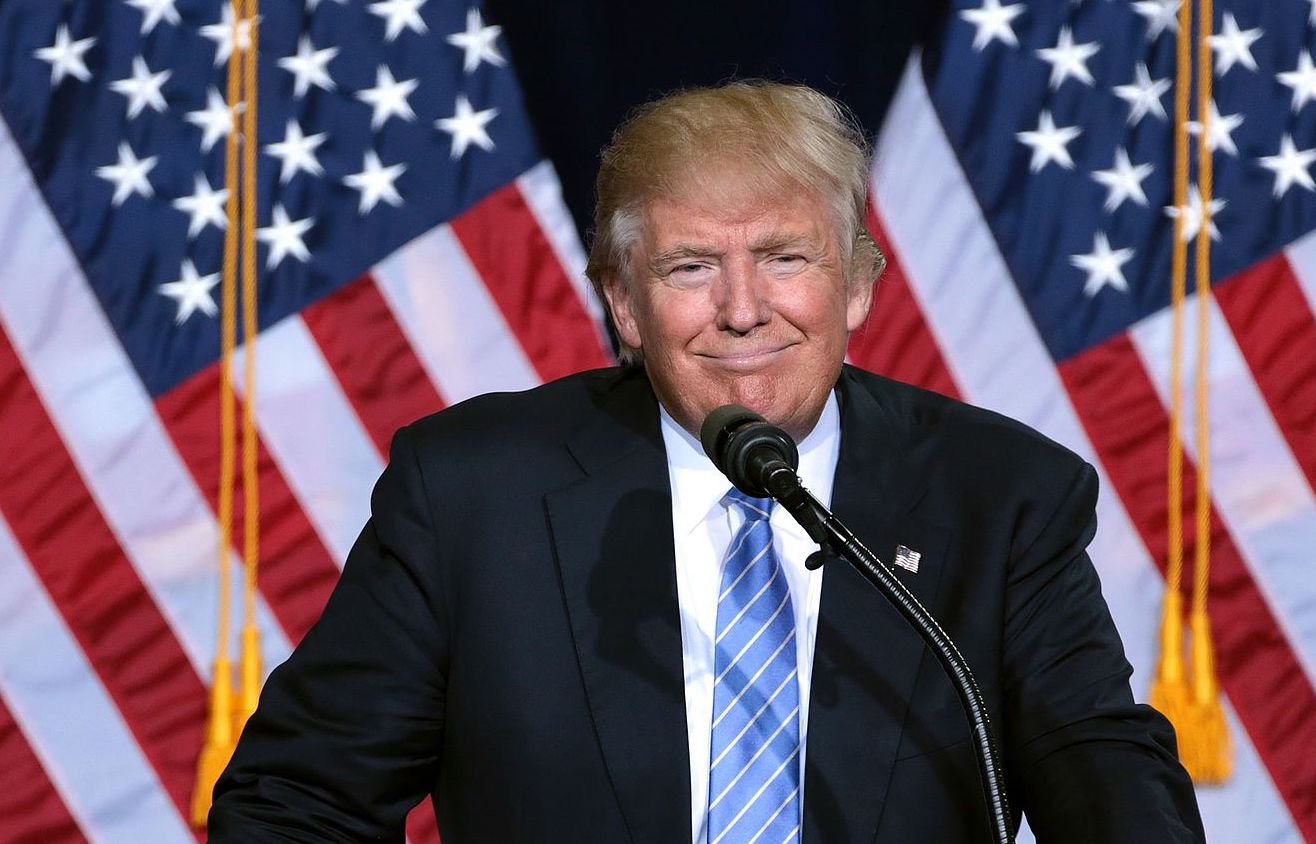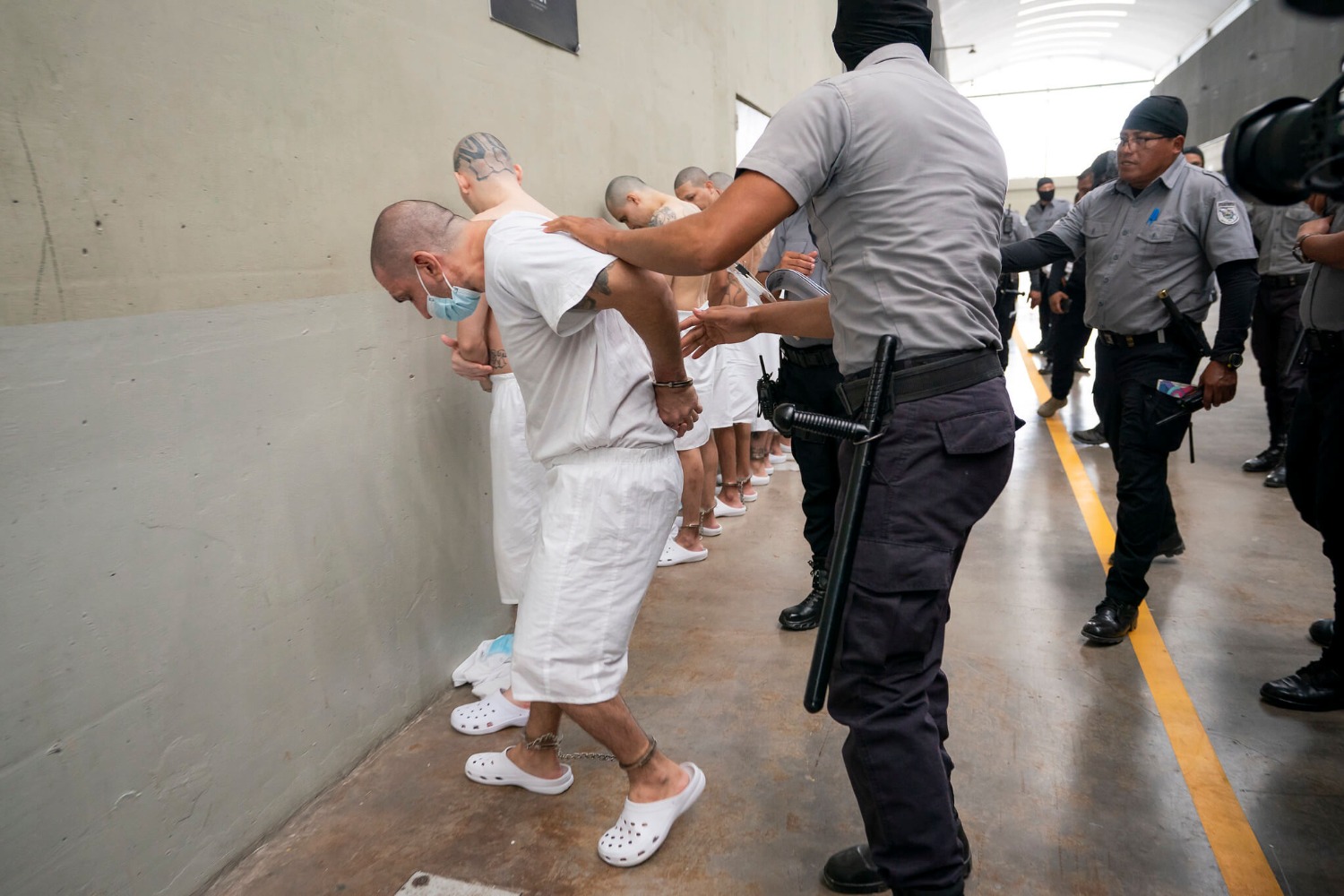Charlottesville and the Problem of Donald Trump’s Constitution
It never meant much that in the statement he delivered from the White House about Charlottesville, President Trump trudged to a mike and checked the teleprompting box. He has always chosen to govern by the tweet: It is his authentic voice in communicating with “his” people. The first of his tweets could be assumed to be authoritative.

Published by The Lawfare Institute
in Cooperation With

It never meant much that in the statement he delivered from the White House about Charlottesville, President Trump trudged to a mike and checked the teleprompting box. He has always chosen to govern by the tweet: It is his authentic voice in communicating with “his” people. The first of his tweets could be assumed to be authoritative. The White House statement merely rendered unto Washington what Washington insisted that he owed. Then, staying true to his true and tweeted views, he took it back. Having briefly put out conflicting messages, he eliminated the inconsistency on Tuesday.
Commentators are debating whether he is revealing himself as sympathetic to the white nationalist program, fearful of alienating that constituency, or just unable to respond to criticism in any way other than by “doubling down” and lashing out. The first of these possibilities is the most damning, of course, but neither of the other two is helpful to him or his presidency. And all three could be in some combination true. At a minimum, Trump faces the charges that, in courting the vilest of political support, he is a dangerously reckless president, and that, in allowing his political interests to control his response to Charlottesville, he has shown that he is far too small for the office.
But Charlottesville also demonstrates that Trump is uniquely unwilling to honor and uphold the core conception of full equality for all citizens under the Constitution and the law. The white nationalists are not simply a contemptible political association for this president. The program he refuses to clearly, unequivocally and convincingly disavow is an assault on the constitutional order. It is organized centrally around a racialist definition of the national political community and the rights and protections that membership bestows. Their leaders wave the Confederate flag, and honor the history of the Third Reich, in speaking of America as “a white country designed for ourselves and our posterity. It is our nation, it is our inheritance, and it belongs to us.”
Mr. Trump comes to office as a well-recognized friend of this movement, having established his bona fides as the prominent leader of the “birther” movement. His point was simple and clear: a black American could not have legitimately come to hold the nation’s highest office. The insinuations and false claims about the 44th President’s birth certificate served only to set up the basic claim: Someone with his name and color did not belong in the Oval Office. Trump clung to his attack on the legitimacy of the presidency for as long as he could, until it threatened to cloud his own improbable claim to succeed him. As we have seen again in the case of Charlottesville, he eventually backed off. He made a brief “statement,” with no tweet to follow.
Trump has not limited himself to waging this war of exclusion on a merely rhetorical front. His Vice President is managing the Presidential Advisory Commission on Election Integrity, a major initiative to root out the “voter fraud” that the president insists robbed him of a popular vote victory. "There are millions of [fraudulent] votes, in my opinion," he proclaimed, and “of those votes cast, none of them come to me. None of them come to me." Of course, they “came” out of “certain areas” in urban areas, such as in Pennsylvania and Michigan. This corruption of the political community was the one way—sometimes, he suggested, the only way—he could have lost, and he declared that if he did lose, we would “have a whole different country and it's never going to come back.”
Now this Commission, headed by Pence, proposes to collect data on voters in all jurisdictions and store it on a White House server, scouring it for “fraud” in “certain areas” and striving to restructure, by narrowing along racial and ethnic lines, the eligible electorate. Ross Douthat has written that we cannot make too much of this anti-fraud program, with its central but not exclusive emphasis on onerous and arbitrary personal identification requirements. It is “more incremental than existential: Voter-ID laws are not Jim Crow,” he writes. He stumbles badly on this analogy. However far one might or might not take any comparison to Jim Crow, it remains the case that the ID laws and other franchise-restrictive measures of recent years have erected new discriminatory barriers to the right to vote. Trump is openly eager for more of the same and working to bring it about.
Trump’s defenders insist that any election reform must include reasonable protections against ineligible voting. Few will disagree. But this misses the point. Trump’s goal in setting up the Commission is far from anything recognizable as reform. He has broken with a string of bipartisan programs supported by election administration professionals and has substituted in their place a sham process with the different aim of restricting access to the polls of a targeted population of voters, primarily in minority communities. It is well known whom he has in mind and where he believes them to be located: he has confirmed his views at rallies and in tweets, and his audience understands him perfectly.
Just this week, in the middle of the national outcries over Charlottesville, the President slipped in yet one more message crafted to appeal to the nationalist fringe. He suggested he might pardon his fellow “birther,” the former Sheriff of Maricopa County, Joe Arpaio. A federal court has convicted Arpaio of criminal contempt for defying a court order that he stop the racial profiling by which he pursued his infamous anti-immigrant crusade. Trump’s own Department of Justice brought and won this case. But to this president, Mr. Arpaio is a “great patriot” who has been treated “unfairly.” Having mused openly not too long ago about his plenary pardon power, Mr. Trump would single out as one its potential beneficiaries a rogue law enforcement officer who has disregarded individual rights and constitutional limits on his authority, and then refused to comply with a court order calling him to account. Trump was sure to move this particular message on Twitter—and did.
So it is no surprise that after Charlottesville, the President could not bring himself to clearly, definitively repudiate a movement that he worked so hard to attract to his side and keep there. This is not just for him a political move to hold his “base,” nor only a lamentable failure of the moral leadership presidents in moments like this are called on to exhibit. It is not a question of his being clumsy and impulsive, a demagogue and a showman, which might suggest (as some have) that the reaction to him is overwrought. Trump has consistently embraced a foundational attack on the constitutional limits—the “borders”—of the American political community.
In notable cases, presidents before him who faced similar challenges have understood the Chief Executive’s obligation to honor the principle of political equality under the law and Constitution. A few examples, spanning the last half-century, suffice. In 1954, calling federal troops to Little Rock, Arkansas, to enforce a school desegregation order, President Eisenhower spoke directly to the “dignity and worth of the human person…without regard to distinction as to race, sex, language or religion.” Nine years later, in June of 1963, President Kennedy directed the National Guard to assist in overcoming in Alabama yet another instance of resistance to court-ordered desegregation. Kennedy defined the question as a moral one “ clear as the American Constitution”: it was “whether all Americans are to be afforded equal rights and equal opportunities.” Three days after September 11, 2001, President Bush visited the Islamic Center in Washington DC to warn against discriminatory or retaliatory mistreatment of the “millions of Muslims amongst our citizens.” He affirmed that the United States was a “great country” because “we share the same values of respect and dignity and human worth.”
This is not to suggest that these or any other presidents can boast of unblemished leadership on racial justice. And many fell far short of Eisenhower, Kennedy or Bush 43. But in moments of crisis, when required to confront the gap between constitutional principle and the reality of political and social inequality, presidents in more recent times conceded the failure and sought to reaffirm the principle. This is now generally expected of presidents--a sign of at least some progress made on these issues.
In the Trump presidency, it is now clear, there should no longer be any such expectation. Trump did not respond to Charlottesville with words about human worth or dignity. He elected to denounce “hate” while making it clear in his first statements, more explicitly even in the last one, that as he saw things, the fault lay with “both sides.” He managed to reduce the stakes to the question of who obtained a permit for their demonstration, and he declined to judge all those who marched side by side with the supremacists, some of whom, in his view, were undoubtedly “fine people.” Nothing more clearly captured his position than his insistence that he withheld judgment on events in Charlottesville until he had all the facts. But all along he had one such fact—the program of the neo-Nazis and white supremacists who organized this march—yet he would not speak of it. That which is odious in their dogma and conduct was not, to Trump, “clear as the Constitution.”
The presidential oath that Donald Trump took commits him to preserve, protect and defend the Constitution, and to faithfully execute the law. Both of these obligations entail a basic, immutable respect for political equality and dedication to the impartial enforcement of the law. When these principles have been tested, other presidents have affirmed them with the full authority of their office. Donald Trump has not.
For this reason, Trump has been rebuked following Charlottesville for a failure of “moral leadership.” It is an understandable critique, but nothing in Donald Trump’s history would have suggested that he would come to this office with much personal moral capital to spend. Expectations would have to have been low. But once sworn in as President, he was obligated in that capacity to uphold and affirm as required basic constitutional principles and guarantees. To fail to do so—in this case, to decline to do so—is not simply a moral failing, but a desecration of his oath.
The term “constitutional crisis” is bandied about a fair amount, and, as some have noted, not with great precision. The courts and the press have risen up to answer the extraordinary challenge that Trump has thrown down. Benjamin Wittes and Quinta Jurecic remind us, however, that the presidential oath of office matters, and it a grave problem for the country, which may well turn into a crisis, when a Chief Executive disregards the constitutional obligations of the oath or radically reinterprets them. Charlottesville makes the seriousness of the problem, evident for a long time, that much harder to minimize or excuse for another three and a half more years.




